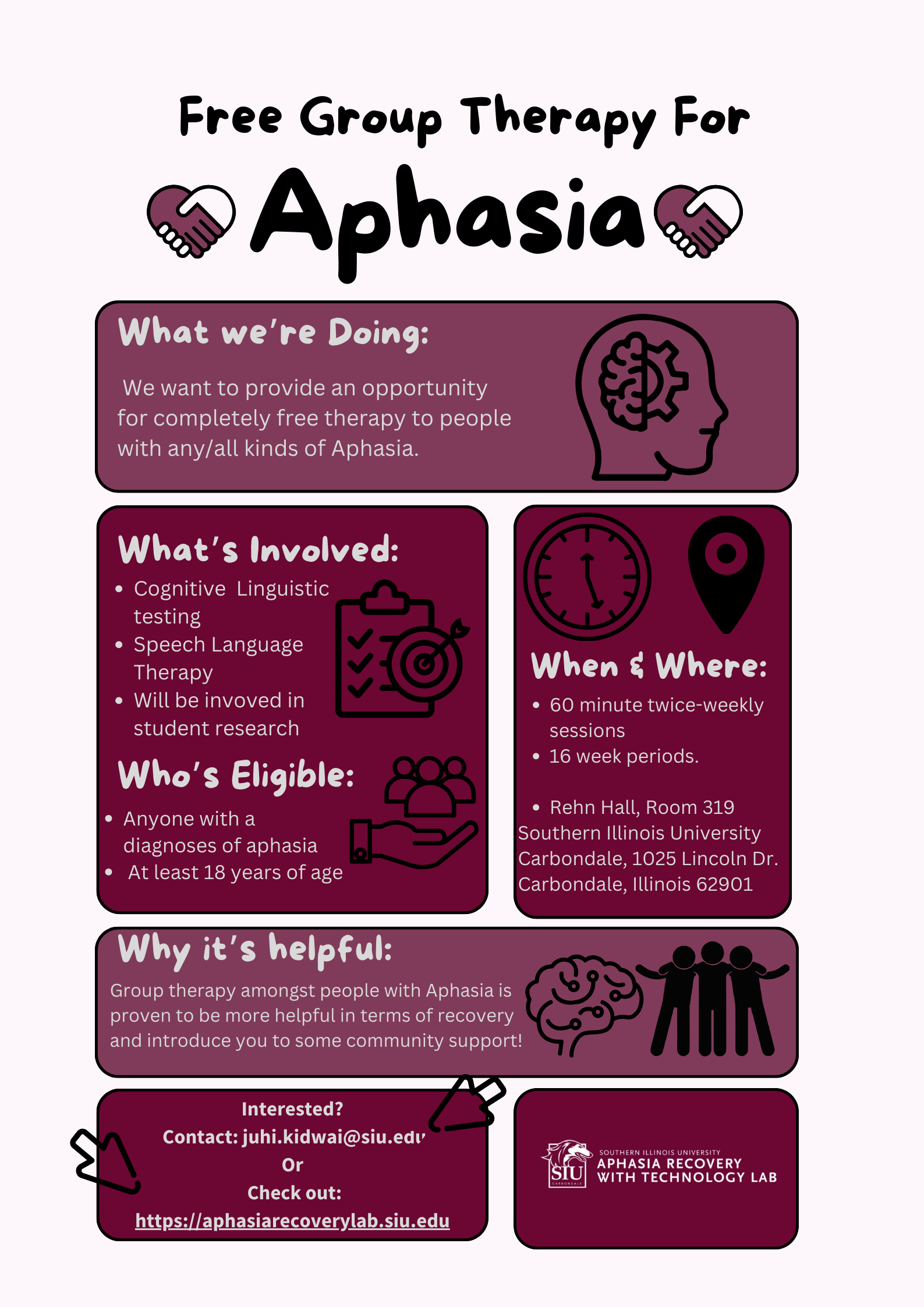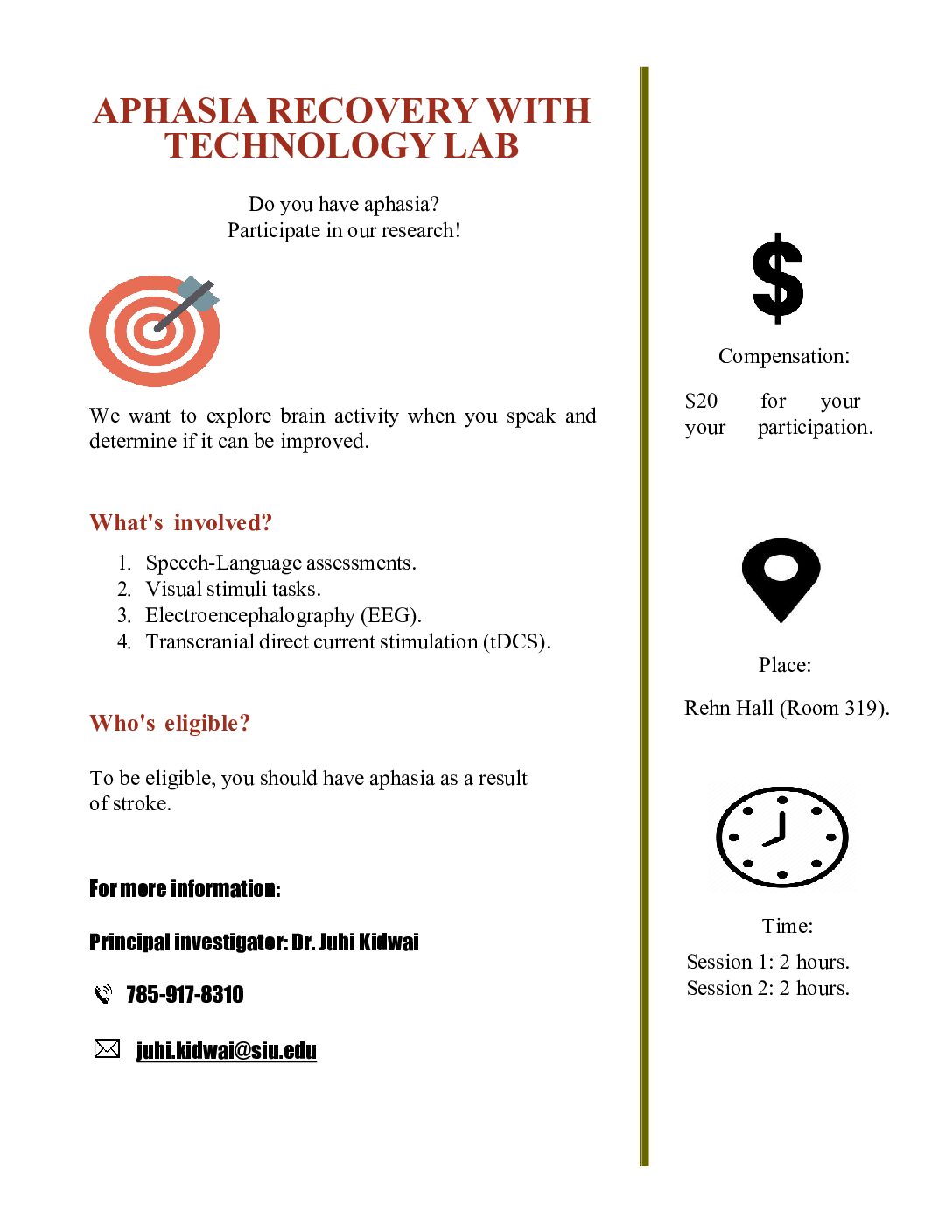Current projects
Our work focuses on improving outcomes for individuals with aphasia, a language disorder that is common after stroke. Many of our projects focus on the topic of inner speech, which is often defined as the “little voice” in a person’s head, overt speech, which is your “true” voice or the voice you use to speak, and executive function, which is what your brain controls to move and make decisions during your day-to-day life. People with aphasia often report that what they can say out loud does not fully capture what they can say or hear in their head. One of our primary goals is to understand this discrepancy and to use it to improve outcomes in aphasia.
inner speech & Executive function
Testing the relationship between inner speech and executive function. Past research shows poor inner speech means poorer executive function. We’re testing what good inner speech will do to executive function.
Inner speech & overt speech
Comparing healthy adults to individuals with aphasia on phonological and semantic tasks and researching the correlation between overt speech and inner speech.
Inner Speech with EEG
Exploring the existence of an objective neural marker for speech intention using EEG and can it be enhanced by applying transcranial direct current stimulation (tDCS).
Aphasia Group Therapy & Quality of life
Testing the relationship between education and mutual quality of life between individuals with aphasia and their caretakers.




